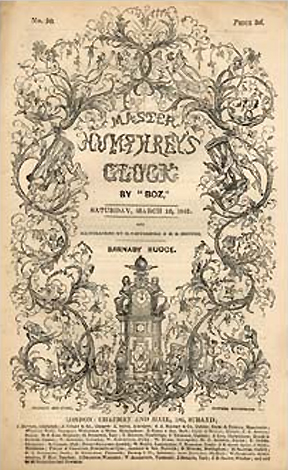
Charles Dickens was one of the most influential and greatest novelist/writter ever born during the Victoria era. He was born on 7 February 1812 in Land port (Portsea), Hampshire to Jhon Dickens who was a clerk in the Navy Pay Office and Charles´s his mother ´s name was Elisabeth. Charles was second of the eight children in the Dickens Family.
Charles´s family moved to London in 1814, when he was just two years and Further after two years in 1816, the Dickens family settled at Kingdom of Kent where Charles spent early years of his childhood. His parents taugtht him reading and writing and also helped in development of his intellectual capabilities. From early age of this childhood , Charles was interesed in reading books and had his own small collection of books in his room. He read books of Robinson Crusoe, Roderick Random, Humphrey Clinker, and Don Quixote....
Charles attended a school at Clover Lane, Chatham for about two years after which his family moved to Bayham Street, Cadmen Town. Charles was admitted to a new school at Cadmen Town, which had its own strict rules and regulations. Near 1822-23, economical condition of his family worsened and he was forced to discontinue his schooling. He was sent to earn money in a blacking warehouse, Hungerford Market, London for about two years of labor, Charles faced humilliation , evil social treatment , and other social condition ....
that incited him against the situation he was living in.
Further in 1824, Charles studied at Wellington House Academy, London for next two years and in 1827 he attended Mr. Dawson's School. During the period from 1827 to 28, he worked as an office boy at a Law Office. During this time, Charles never gave up his interest of reading, and always managed to get some time out for reading after work. From 1830, he worked as a shorthand reporter at Doctor's Commons. Being a reporter at 19, Charles became a perfectionist and was known for his accurate reports. Charles became parliamentary reporter and worked for True Son, next he worked for Mirror of Parliament, a magazine and a chronicle (two years each). While working as reporter Charles wrote short stories, essays and drew sketches. His comic character Mr. Pickwick appeared in papers and became very popular, bringing Charles a very high reputation in 1836, in the same year, he was married to Catherine who was a daughter of George Hogarth.
From 1837 till 1841, Charles took on writing novels, but his novels were published in small parts instead of whole of a novel at a time. He wrote novels like Oliver Twist, Nicholas Nickelby and Old Curiosity Shop. From 1841 to 1860, Charles wrote few more novels, which were very much based on his personal experience. David Copperfield, Bleak House, and ‘A Tale of Two Cities Great Expectations’ etc. are among his famous work during that period. He also took part in protests and campaigns against social injustice, hypocrisy in the society and wrote stories, pamphlets and plays in that context. Till 1868, he traveled to many places and gave lectures in US and England. While doing all this, he continued his work and wrote numerous novels, books and plays. His work includes fiction, mystery, satirical writing on the social condition etc.
Charles died on June 9, 1870 at Gadshill Place, near Rochester, Kent where he lived for about 10 years.














